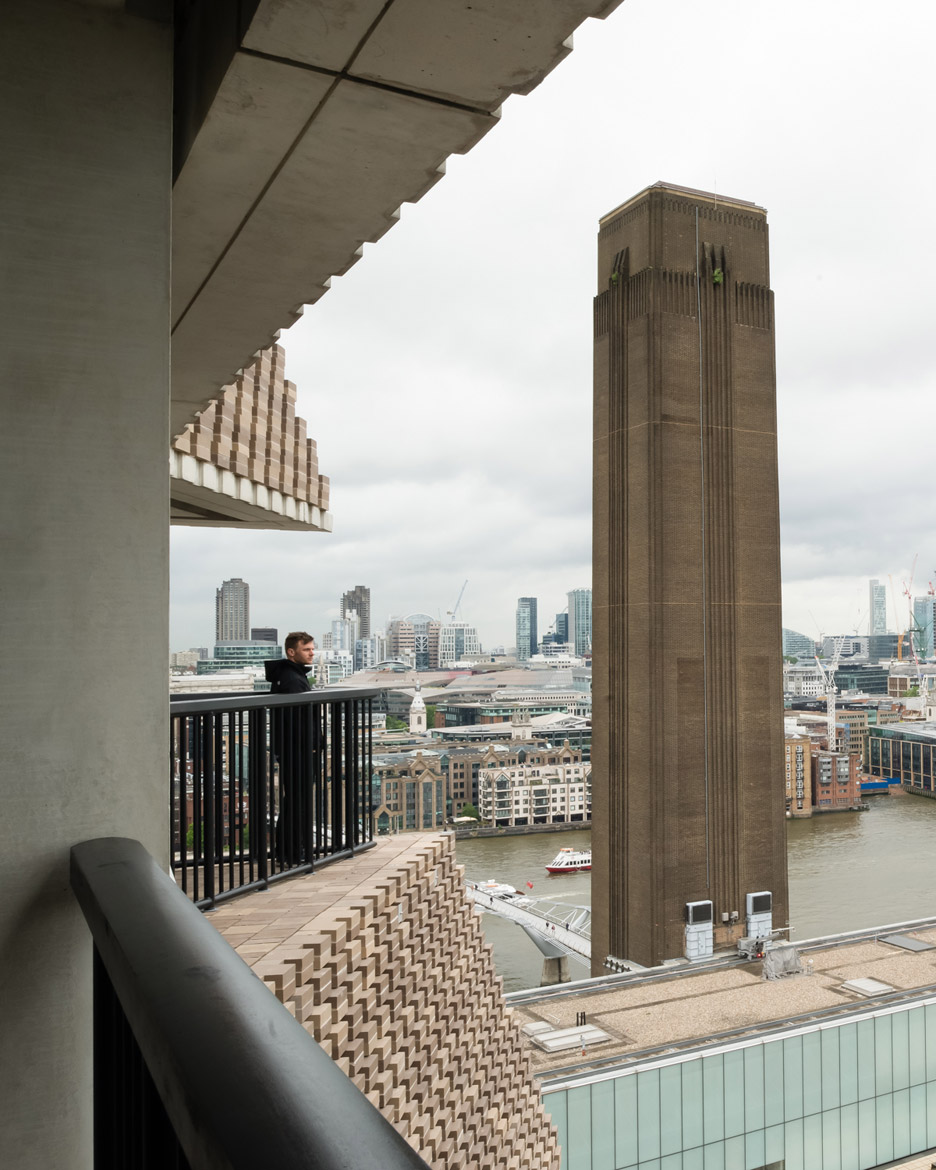Tate Modern visitors accused of spying on Neo Bankside residents
Residents of the Rogers Stirk Harbour-designed Neo Bankside apartments have threatened legal action, after Tate Modern opened an observation deck that provides views into their private apartments.
The 360-degree rooftop viewing deck is one of the headline features of the Switch House – the 64.5-metre-high Tate Modern gallery extension by Herzog & de Meuron, which opened to the public in June.
But residents of the adjacent apartment complex have claimed that gallery visitors are using zoom-lens cameras and binoculars to peer inside their glass-walled homes and take photographs.
Having failed to reach a solution with Tate, the homeowners are now seeking legal action to regain their privacy.
Local politician Adele Morris, who was initially involved in trying to resolve the issue, described it as a "tricky situation".
"Residents were very distressed to suddenly discover they had no privacy at all in their homes," she told Dezeen.
"Nobody had anticipated that people would literally be hanging over the balcony and taking photographs of their rooms and then posting them on the internet."
Morris has been involved in discussions between Tate and Neo Bankside's developer, Native Land, to try and find a solution. Options included adding one-way film across the glass windows of the apartments, installing plants on the viewing deck, or closing one section completely.
So far the only change has been the addition of a sign asking Tate visitors to be more considerate.
"Somebody needs to do something and that somebody is probably Tate," said Morris. "I sympathise with them, because they had all the necessary permissions – nobody has done anything wrong in planning terms."
"But people hadn't realised how the terrace would be used," she continued. "They were aware there was going to be a terrace on the 10th floor, but no one imagined for one moment that people would go up there and focus attention directly into their homes."
Since the platform opened, visitors have been sharing their photographs on social media channels.
Speaking to the Mail on Sunday, one resident described the experience as "terribly intrusive".
"I bought this apartment because of the view but now I have to keep my blinds down whenever the platform is open, otherwise you get people waving at you," the homeowner told the paper.
"If I had known what it would be like, I would never have bought a flat here. Now I think I would struggle to sell it."
Rogers Stirk Harbour + Partners won planning permission for Neo Bankside in 2007. Its first six towers were completed in 2013, with homes selling for as much as £19 million.
The project came under fire last year when it emerged that it did not achieve its affordable housing target. The figure was 27.5 rather than 40 per cent, prompting Guardian critic Oliver Wainwright to brand it "a dangerous precedent".

Tate was granted planning permission for the Switch House in 2009, two years after Neo Bankside.
The gallery has now issued a statement insisting that residents were consulted throughout the development of the project.
"The viewing level is an intrinsic part of the free public offer of the new building, providing a 360-degree experience that is virtually unique to London," it said.
"Since the very first plans were drawn up in 2006 we have been through an extensive consultation and planning process, and have maintained an ongoing dialogue with local residents."
"At no point during this process were any concerns raised regarding the viewing platform. There is signage encouraging the public and visitors to use it respectfully and responsibly."